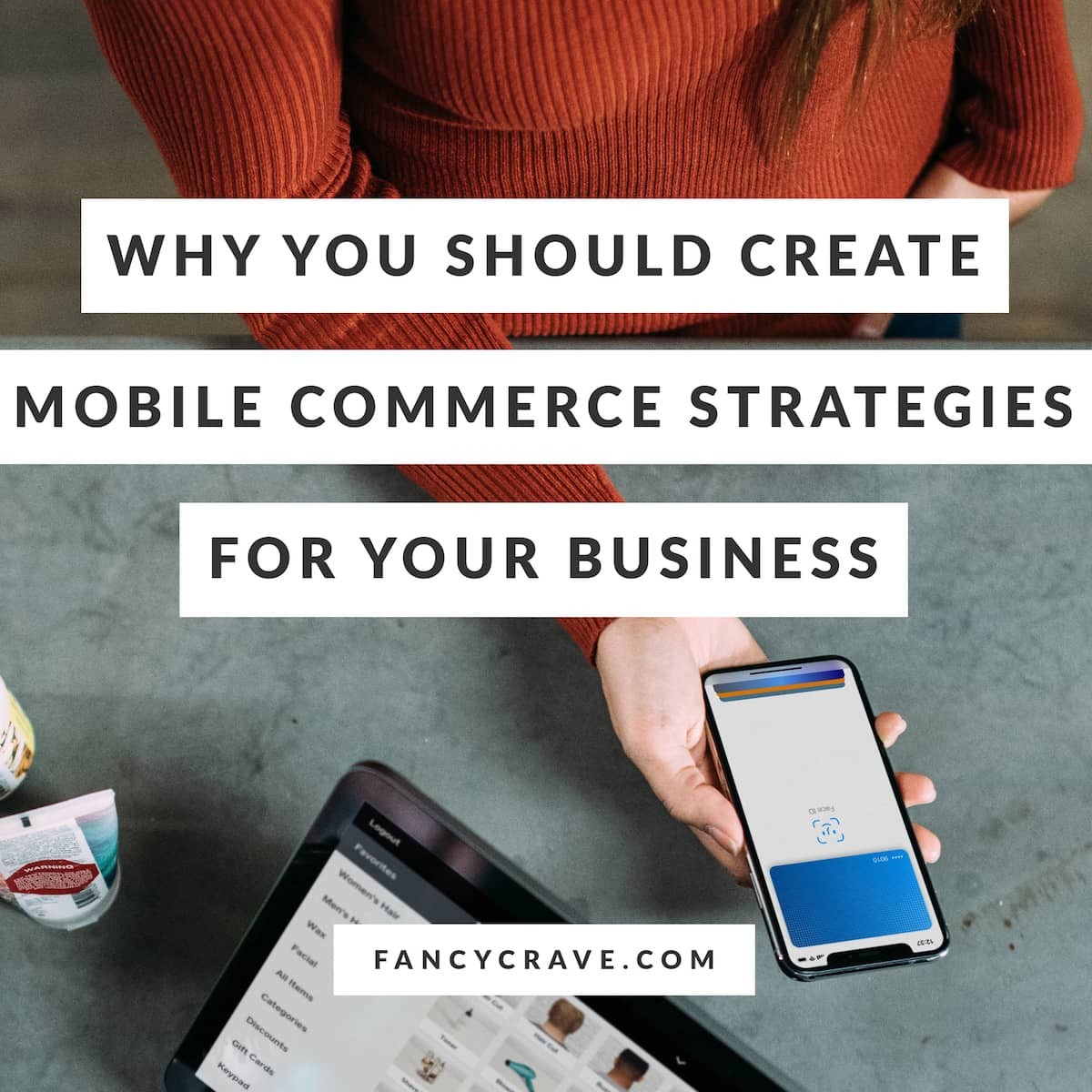Most people thought that mobile commerce (or m-commerce) was different from e-commerce. But in fact, they’re simply two facets of the same coin. And with the rise in the use of portable devices like smartphones, m-commerce is set to make huge contributions to business sales and growth.
The explosion in the e-commerce sector since the implementation of m-commerce services has been phenomenal. Mobile shopping has gone up exponentially. Indeed, a recent study has predicted that by 2020, mobile usage will reach 2.87 billion globally.
Don’t you think this doubles the importance of m-commerce in the future? It sure does.
What Is Mobile Commerce?

Mobile commerce (also known as m-commerce) is defined as “the delivery of e-commerce services – such as payment and live customer support – to consumers directly from anywhere, using wireless technology”.
First coined in 1997 by Kevin Duffey during the launch of the Global Mobile Commerce Forum, it’s now taken the world by storm. By 2021, sales through mobile commerce is expected to be 54 percent of the overall ecommerce sales.
Big brands like Walmart, eBay, Unilever, and Home Depot are coming up with innovative ideas to capture the interest of smartphone users and channel their engagement towards their initiatives. Mobile commerce could be more crucial, if not already, than ecommerce services available to desktop browsers. The competition now is obviously between mobile and desktop.
Some of the latest mobile shopping trends this year include:
Automation and augmented reality: Expect most online services to be automated. Your behavior and buying patterns on mobile apps or browsers can be tracked and stored for later marketing purposes. Augmented reality will also help you choose better products in the future.
Chatbots taking the front row: There are a good number of consumers who prefer dealing with chatbots these days than interacting with regular customer care individuals. Developers are getting more and more requests of creating exclusive chatbots specific to mobile platforms.
Videos and visual content: E-commerce marketers will go out of their way to include visual content to enrich their customers’ shopping experience and increase engagement. Short clips, videos, and better graphics will be used as part of future promotional programs.
Why M-Commerce Is Important To Your Business

Flexibility
The growing usage and popularity of mobile phones is one of the key reasons. Mobile shopping (real-time shopping) offers convenience and flexibility.
Better customer satisfaction
M-commerce drives customer satisfaction to a different level. Technology like augmented reality and chatbots for instance, can enhance the customer experience even further.
Timely notifications.
Post purchase, you can send timely notifications to your customers to keep them engaged in different offers, updates, and other information. This is an automated process that comes with m-commerce. Notifications allow customers to quickly track shipments and know exactly when and what time their orders will be delivered.
Reaching a wider audience.
Using mobile commerce initiatives can help you reach wider audiences because it’s portable. This means greater opportunities for even small retailers to go global.
Easier transactions.
Smart phones allow you to do your online shopping from anywhere, at your own convenience. With just a few clicks, mobile apps help you complete transactions in a highly secured way. Moreover, experts say mobile app shopping carts are safer than normal web browsers.
Why Mobile Commerce Is Important In Online Business Growth

Considering consumer behavior nowadays, this is something you need to implement from the beginning. A lot of user data can be gathered through mobile apps – and this can be one of your most important business assets. That’s why prioritizing m-commerce through iOS and Android app development services is a must.
A business that wants to grow and get ahead of its competitors should get digital. And the rise of ecommerce has been a huge influence in the overall market. When smart phones became popular, m-commerce took the front seat. You can easily see major differences once you have applied its principles in your business.
Mobile shopping integration will:
- Increase your customer base;
- Improve customer interaction;
- Enrich customer engagement;
- Reach more target audiences; and
- Enhance customer loyalty.
Imagine integrating M-commerce strategies to your business. That means opening a door to what mobile users need and want from you. In the words of Sachin Jaiswal, CEO of Niki.ai:
“It’s not just about the smartphone and internet penetration though, it’s about 24/7 accessibility, the ease and convenience with which one can get tasks done on one’s phone.”
How m-commerce could change the way you do business:
- Send direct notifications to your customers about new products, offers, discounts, etc.
- Improve personalization by understanding your customers’ preferences, purchase patterns, and behavior.
- Reduce marketing costs by reaching a wider number of target markets.
- Mobile apps are cheaper to maintain.
- Gain access to a huge amount of customer data you can later refer to for future marketing purposes.
What’s Next?

Whether you’re a small or large business, integrating M-commerce with E-commerce will surely benefit you. Everyone wants to be part of this dynamic digital world. And mobile shopping is one of the most popular channels out there today.
Your mobile commerce strategies should be able to keep up with the times. Businesses must focus on increasing the efficiency and usability of their apps (i.e. improve check-out, simplify navigation, etc.).
There are a good number of affordable m-commerce software providers that can help you build your mobile shopping platform. These providers will handle your end-to-end application development and maintenance so you have more time to manage your business. From app creation, payment gateways, chatbots, to user-friendly dashboards - you will get everything done by these experts.
So what are you waiting for? Get into the future by prioritizing your M-commerce strategies.

